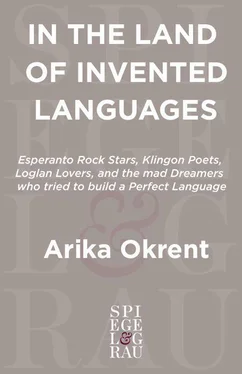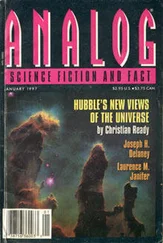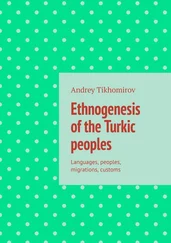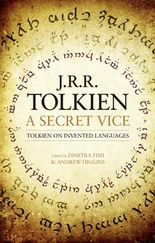Rokbeigalmki (Belsky, 1997)

and they said “hey! we’ll build for ourselves a village, and a tower (lit. house of tallness) that its head in the heavens will [be], and we’ll make for ourselves a name—so that we will not be scattered over the surface of the entire land.”
Megdevi (Peterson, 2001)

And said they, “Onward! Let’s for ourselves a city build and a tower, which it the head of in the clouds will be, and at that time, we for ourselves famous reputations will have, lest we should be scattered throughout the whole Earth the face of.”
Toki Pona (Kisa, 2001)

person many say this: o come! we many o work earth build building long object tall, head belonging to long object in above air o name belonging to we many come big! we want not this: we many possible not we many in land all.
Ithkuil (Quijada, 1995)

Then they said let’s make a town and a tower with its top part in the sky thereby potentially gaining notoriety and respect for ourselves lest we end up scattered across the face of this world.
Tepa (Elzinga, 1995)

and we will build ourselves a pueblo whose top will reach to the sky; and we will be famous if we are scattered sometime throughout the region.
Ceqli (May, 1996)

and letter-pronoun-j past speak, “invite come!—I-you future build one city, and one tower and letter-pronoun-t separator-particle top which is-located-in sky. And you-I future have-become fame-name for-prevent that I-you passive spread-throw to all-place which is-located-in the world.”
More samples of invented languages can be found at inthelandofinventedlanguages.com.
Much of the information in this book comes from my own reporting. As much as I could, I have consulted the original works of the language inventors I discuss. The Library of Congress has a good collection of artificial languages, as does Princeton University and the University of Chicago. For the biographical information on Bliss, Weilgart, and Brown, I am indebted to the friends and family members who allowed me to interview them. They were incredibly open with me about memories that were sometimes painful for them. I am also grateful to the people who had the foresight to allow their basements and attics to be taken over by piles of documents for years, so that I could one day come along and dig through them. In this regard Shirley McNaughton, Bob LeChevalier, and Andrea Patten have provided me with indispensable help.
But, of course, I have also relied heavily on the work of others. What follows is a list of some of the secondary sources I have consulted and some suggestions for further reading.
General books about invented languages:
Umberto Eco, The Search for the Perfect Language (Blackwell, 1995).
Andrew Large, The Artificial Language Movement (Blackwell, 1985).
Marina Yaguello, Lunatic Lovers of Language: Imaginary Languages and Their Inventors (Athlone Press, 1991).
Nine Hundred Languages, Nine Hundred Years
For more about Hildegard von Bingen, see:
Sarah L. Higley, Hildegard of Bingen’s Unknown Language: An Edition, Translation, and Discussion (Palgrave Macmillan, 2007).
The story of Joseph Schipfer comes from:
Norbert Michel, “Joseph Schipfer—Träumer oder Humanist?” Beiträge zur Wallufer Ortsgeschichte 1 (1993).
Information about Vela and Ben Prist is from:
Alan Libert, Mixed Artificial Languages (Lincom Europa, 2003).
John Wilkins and the Language of Truth
Eco’s book is particularly focused on this time period and contains a great deal of information about the historical background of the seventeenth-century language movement. Other books I have consulted for this section include:
Florian Cajori, A History of Mathematical Notations (The Open Court Publishing Company, 1928–29).
R. J. Craik, Sir Thomas Urquhart of Cromarty (1611—1660): Adventurer, Polymath, and Translator of Rabelais (Mellen Research University Press, 1993).
David Cram and Jaap Maat, George Dalgarno on Universal Language: The Art of Signs (1661), The Deaf and Dumb Man’s Tutor (1680), and the Unpublished Papers (Oxford University Press, 2001).
James Knowlson, Universal Language Schemes in England and France,1600–1800 (University of Toronto Press, 1975).
Barbara J. Shapiro, John Wilkins, 1614–1672: An Intellectual Biography (University of California Press, 1969).
Joseph L. Subbiondo, John Wilkins and 17th-Century British Linguistics (John Benjamins, 1992).
Ludwik Zamenhof and the Language of Peace
For a very entertaining account of Solresol, see:
Paul Collins, NOTES Banvard’s Folly: Thirteen Tales of Renowned Obscurity, Famous Anonymity, and Rotten Luck (Picador USA, 2001).
This book also tells the story of George Psalmanazar, who in the early eighteenth century made up a language to perpetuate a hoax where he pretended to be a native of Formosa, and gave lectures all over Europe about his made-up exotic culture.
On Esperanto, see:
Marjorie Boulton, Zamenhof, Creator of Esperanto (Routledge and Paul,1960).
Peter G. Forster, The Esperanto Movement (Mouton, 1982).
Wendy Heller, Lidia: The Life of Lidia Zamenhof, Daughter of Esperanto (George Ronald, 1985).
Pierre Janton, Esperanto Language, Literature, and Community (State University of New York Press, 1993).
Don Harlow maintains a very informative Web book about Esperanto at donh.best.vwh.net/esperanto.php .
On Hebrew, see:
Jack Fellman, The Revival of a Classical Tongue: Eliezer Ben Yehuda and the Modern Hebrew Language (Mouton, 1973).
Shlomo Izre’el, “The Emergence of Spoken Israeli Hebrew,” in Corpus Linguistics and Modern Hebrew: Towards the Compilation of the Corpus of Spoken Israeli Hebrew (CoSIH) , edited by Benjamin H. Hary (Tel Aviv University, 2003).
Charles Bliss and the Language of Symbols
On the rise of English and an analysis of how a language comes to world prominence, see:
David Crystal, English as a Global Language (Cambridge University Press,1997).
Nicholas Ostler, Empires of the Word: A Language History of the World (HarperCollins, 2005).
For information about Elias Molee, see:
Marvin Slind, “Elias Molee and ‘Alteutonic’: A Norwegian-Americans ‘Universal Language,’” Norwegian-American Studies (forthcoming).
Molee’s papers are held at the Norwegian-American Historical Association, St. Olaf College.
On the strange, strange life of Edmund Shaftesbury, see:
Читать дальше


















